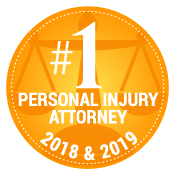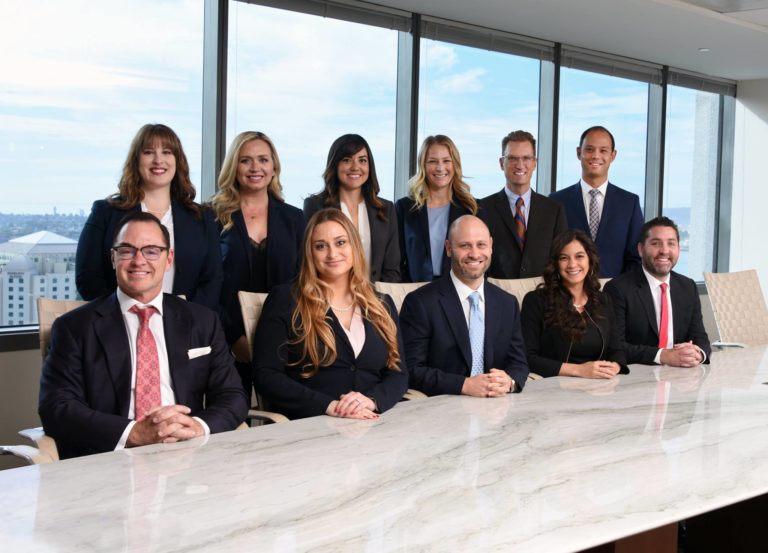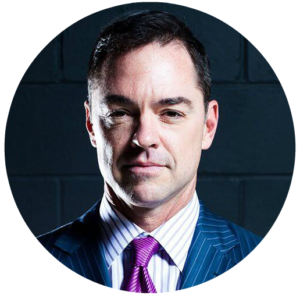El Centro Nursing Home Negligence Lawyers
- 550+ Google 5-Star Reviews
- $1 Billion won over 15 years
- Won’t settle for low offers, not afraid to fight for max value
Get a Free Case Evaluation
No fees until we win!
All San Diego Case Types

Personal Injury

Brain Injury

Car Accident

Slip & Fall

Truck Accident

Wrongful Death
El Centro Nursing Home Negligence Lawyers
 Even before the grip of the coronavirus pandemic, nursing homes across the country were in trouble. Nearly 70 percent of the approximately 15,600 nursing home facilities in the U.S. are run by for-profit organizations that have struggled for years with the failure to attract new residents, shortages of skilled staff, and little profit to use for upgrading existing facilities.
Even before the grip of the coronavirus pandemic, nursing homes across the country were in trouble. Nearly 70 percent of the approximately 15,600 nursing home facilities in the U.S. are run by for-profit organizations that have struggled for years with the failure to attract new residents, shortages of skilled staff, and little profit to use for upgrading existing facilities.
What Is Nursing Home Negligence?
Negligence is a legal term that means there has been a breach in the duty of care that an individual or entity owes to others. In the nursing home industry, federal laws require nursing homes to take actions to safeguard the health and well-being of the residents. Failure to meet these regulations is considered negligence. Here is a list of standards that nursing homes are required to meet:- Nursing home facilities must not discriminate against residents.
- Residents must be free from abuse and neglect within the facility.
- Residents must be free to exercise the rights granted to them as U.S. citizens.
- Facilities must adopt and observe policies pertaining to infection control, including flu and pneumonia vaccinations, and procedures pertaining to the safety of food and medical supplies.
- Facilities must report all allegations of abuse or neglect to the proper state authorities as well as any outbreaks of infection.
- Residents have the right to access medical care and to have a say in the physician they see and the treatment they’re prescribed.
- Facilities must provide notification to the resident’s representative if the resident is being transferred, is changing rooms, or requires emergency medical treatment.
- Facility staff must treat each resident with dignity and respect.
- Residents have the right to be free from physical and chemical restraints, to entertain visitors, and to participate in activities.
- Residents have the right to make complaints about the care they are receiving at the facility without fear of retribution from staff members.
- Residents have the right to their own property, management of their own money, and privacy.
- Physical abuse: Physical abuse involves physically harming a resident or forcing a resident to do something against their will through physical measures. Examples include the use of physical restraints, pushing, kicking, or slapping the resident. Physical abuse can occur at the hands of facility staff or even abuse by other residents that the facility fails to take measures to prevent.
- Emotional abuse: Emotional abuse may involve the use of intimidation or threats to control the resident’s actions. This type of abuse can also include belittling the resident in front of others.
- Sexual abuse: Sexual abuse in a nursing facility is unwanted sexual contact of any kind, including penetration, touching the resident’s genitalia or breasts, forcing the resident to talk about sex, or making the resident view pornography. If your loved one is currently struggling with this form of abuse contact the El Centro sexual abuse lawyers.
- Neglect: Neglect in a nursing home setting is the failure to provide basic needs such as food and water, failure to provide medical care or implement infection control policies that ensure the resident’s safety, or failure to properly supervise the resident to prevent falls, elopement, or other potentially harmful situations.
- Financial exploitation: Nursing home residents can also be financially exploited by staff and others at the facility. Financial exploitation involves taking the resident’s money or property.
- The failure of the government and other organizations to zero in on a unified definition of what nursing home abuse actually is.
- The inability of the resident to tell others about the abuse due to cognitive impairment.
- The unwillingness of the resident to tell others about abuse for fear of getting facility staff “in trouble,” or making the abuser angry.
- Elders with little social support from family members or friends.
- Those who suffer dementia. Studies indicate that about half of all individuals with dementia suffer some form of abuse. The most common type of abuse to be endured by residents with dementia is psychological (emotional) abuse.
- Those who have suffered previous physical or sexual abuse.
- Women are at greater risk of suffering from all types of abuse than men.
- Those who suffer functional impairments or poor physical health.
- More susceptible to disease and viruses.
The Signs of Nursing Home Abuse, Neglect, or Exploitation
 If residents are unlikely to report abuse on their own and organizations can’t even decide what the official definition of abuse is, how are you supposed to know if your loved one is receiving substandard care?
These signs could indicate abuse:
If residents are unlikely to report abuse on their own and organizations can’t even decide what the official definition of abuse is, how are you supposed to know if your loved one is receiving substandard care?
These signs could indicate abuse:
- Marked emotional and physical changes, such as withdrawing from activities that were previously enjoyed, agitation and unexplained fear, bruises and other injuries that the facility staff cannot explain, lost weight, the appearance of being over-medicated or under-medicated, the appearance or worsening of bedsores, or the resident is wearing soiled clothing or appears to have not bathed in a while. Warning signs of sexual abuse may include bruising of the breasts or genital area, bleeding, and torn or bloody underclothes.
- The staff will not answer your questions. While nursing home staff are understandably busy much of the time, they should never be too busy to answer your questions, return your calls, or acknowledge your concerns. Be wary if the staff of your loved one’s facility is not providing answers or is brushing off your concerns or acting annoyed about having to communicate with you. Another warning bell that could indicate nursing home abuse is the refusal of staff to allow you to visit with your loved one or to allow the resident to participate in activities that are appropriate for his or her cognitive and physical abilities.
- Frantic staff, inadequate staffing, and high staff turnover. While some turnover in nursing home staff is to be expected, a rotating door of staff members can leave your loved one in the hands of literal strangers who may not be aware of or properly trained to deal with his or her needs. Inadequate staffing can result in neglect as there are not enough trained caregivers to properly handle the increased needs of a population whose members can be cognitively impaired or have mobility issues that require assistance for daily personal care.
- Your loved one doesn’t want a certain staff member to provide care. According to industry experts, residents should never be afraid of nursing home staff. Even if your loved one is cognitively impaired and cannot communicate his or her feelings to you, fear or discomfort when a specific staff member cares for them presents a reason for concern.
- Phones ring constantly and nurse call lights go unanswered. This is another indicator of inadequate staffing. If staff does not have time to answer the phones or to respond to residents who are requesting assistance, there is a risk that a resident is not getting the care that they need or that important information is being missed with those unanswered calls.
- Signs of dehydration or malnourishment. Unfortunately, dehydration is one of the most common types of neglect in nursing homes. Inadequate staffing leads to residents not receiving fluids or meals that they need to remain healthy and, ultimately, to survive.
- Status quo. If the facility staff told you when your loved one moved in that there would be updates and improvements made to the facility, ask about the progress of those projects. If there has been no attempt to provide promised upgrades, it could be an indication of a facility that is in financial trouble. Financial trouble is a downward spiral that leads to inadequate staffing, inadequate provisions, and carelessness. Be wary of facilities that appear unsanitary or have an unchecked problem with insects or rodents.
- Significant withdrawals from your loved one’s bank account or lavish gifts that have been purchased by your loved one for facility staff, changes to wills and other financial documents, or newly added signatories on your loved one’s account.
- A bad feeling. Trust your gut on this one: If it seems that something is not quite right at your loved one’s facility, it probably isn’t and the situation deserves a closer look.
Call Us if Your Loved One Was Abused or Neglected
Formal and informal caregivers to dependent adults—whether they’re compensated for that responsibility or not—have a mandatory civic responsibility in California to report suspected abuse of an elder. If you are unsure as to whether the behaviors and signs you’re seeing constitute abuse, you should seek advice on the matter from trusted friends or professionals. Because abuse generally escalates without proper intervention, reporting your suspicions is always a better idea than doing nothing. To report suspected abuse, you will want to contact your county’s adult protective services department. An additional report should be made to your county’s long-term care ombudsman. Reports can also be made at the state’s 24 hour crisis line by calling (800) 231-4024. If the abuse is reported, investigated, and the allegations are found to be true, what happens next? At this point, you want to contact an experienced attorney. At Gomez Trial Attorneys, we can find out if your loved one is eligible to obtain compensation for his or her injuries, medical expenses, and the impacts that the abuse had on his or her life. In California, the victims of nursing home abuse can file a nursing home personal injury lawsuit against their abuser and the facility in which the abuse occurred. Hire an attorney to guide you, as nursing home abuse cases are often complex and operate on strict timelines. In addition to navigating the legal requirements for a lawsuit, your attorney can provide other services for you, including:- Assessing the damages in your loved one’s case based on the severity of his or her injuries, the cost of treatment, and the impacts of the abuse.
- Collecting evidence and eyewitness testimony that will help prove your loved one’s case.
- Skilled negotiation with the facility’s insurance provider to obtain a fair settlement on your loved one’s behalf.
- Guidance as to the pros and cons of accepting or refusing any offered settlement.
- Attendance at all pre-trial conferences and hearings.
- Litigation of your case, if a settlement offer has not been accepted.
- Assistance in collecting your settlement or award money.
- Continued representation if the defendant in your case files an appeal.
El Centro Nursing Home Negligence FAQ:
Do Not Wait, Get the Help You Need
It is a family’s worst nightmare, suspecting that their loved one is the victim of neglect or abuse in an El Centro nursing home. Nursing home facilities are supposed to help and protect our vulnerable family members, so it is heartbreaking to know that the place that was meant to keep them safe is, in fact, hurting them. What is even worse is that these victims may often either not realize they are being abused, or do not have any way to assert their legal rights. If you believe that your family member is suffering at the hands of an El Centro nursing home facility, you need to do something as soon as possible. To get you started, our legal team has prepared a list of answers to some of the most frequently asked questions our clients have provided concerning nursing home negligence and abuse. With these answers, we want to help you understand what you need to do to protect your loved one, and what you can expect when you hire Gomez Trial Attorneys to help you.Gomez Trial Attorneys—Who We Are

Gomez San Diego Personal Injury Attorneys
1. How common is nursing home negligence or abuse?
Unfortunately, across the United States, millions of seniors are abused or hurt each year in a nursing home. Yet, only a fraction of these situations are reported. As a result, nursing home negligence is a significant problem everywhere, including El Centro. Statistics show that:- As five million seniors are abused each year.
- About one in 10 elders over the age of 60 were abused.
- As many as 24.3 percent of nursing home residents experienced at least one instance of physical abuse while in a nursing home.
- Many of those seniors who have been abused are unwilling or cannot report this abuse. As a result, these figures are much lower than what is happening.
- According to Adult Protective Services (APS), abuse cases have increased in recent years.
- The California Senate Office of Oversight and Outcomes has reported that 13 percent of their long-term care facility complaints involve some form of negligence, exploitation, or abuse, which is over twice the national average.
2. What is considered nursing home abuse in El Centro?
Nursing home abuse refers to any type of harm that comes to elderly residents (65 years or older) in an institution setting, including a rest home, nursing home facility, residential care facility, long-term care home, or convalescent home. This harm can include emotional and physical injuries, sexual assault, financial exploitation, neglect, or other types of abuse. In California, elder abuse is considered the intentional, negligent, or reckless act done by a caregiver or another individual who causes a severe risk of harm or actual harm to a vulnerable individual. Additionally, elder abuse is also the result of a caregiver or another individual who deprives the vulnerable adult of life’s necessities. This abuse may include:- Physical abuse: The infliction or threatening to inflict pain or bodily injury on a vulnerable elder, or depriving them of their essential needs. These actions can include striking, hitting, pushing, grabbing, pinching, biting, inappropriate use of physical restraints, or using drugs to control behavior.
- Medical neglect: This neglect results from delaying or withholding needed medical care.
- Sexual abuse: This includes non-consensual sexual contact of any kind, including sexual harassment or sexual coercion.
- Psychological abuse: The infliction of anguish, mental suffering, or distress through nonverbal and verbal acts, such as belittling, shaming, or threatening to punish.
- Neglect: Failing to provide the vulnerable adult with the care they need, such as not providing them with food, clothing, health, and safety protection.
- Isolation: This involves the involuntary seclusion of a vulnerable adult, which can include preventing them from meeting with visitors or having telephone calls.
- Exploitation: This abuse involves the illegal taking, concealment, or misuse of a vulnerable adult’s funds, assets, or property.
3. How do I know if my loved one is experiencing nursing home abuse or negligence in El Centro?
In some situations, it may be hard to tell if the nursing home is victimizing your loved one. If you suspect anything, you need to call an experienced El Centro nursing home negligence attorney immediately. These lawyers can get right to work investigating the situation and verifying whether any abuse is going on in the nursing home. However, if you see any of the below signs, make sure you not only keep track, but that you let your lawyer know about them as soon as possible:- Cuts
- Bruises
- Wounds
- Scars
- Demeanor changing
- Withdrawing from others
- Unexpected weight loss
- Poor hygiene
- Bedsores
- Hair or Tooth Loss
- Heightened Anxiety
- Panic Attacks
- Efforts to flee the nursing home
- Bleeding from the anus or genitals
- Skittish when being touched
- Multiple hospitalizations for a recurring injury
- Significant bank transfers or withdrawals between accounts that have no explanation
4. Who can file a claim for nursing home negligence in El Centro?
California protects dependent adults and seniors under the Elder Abuse and Dependent Adult Civil Protection Act (EADACPA). Under this act:- A “senior” is defined as an individual who is 65 or older and resides in California.
- A “dependent adult” is any 16-64-year-old California resident with a mental or physical limitation.
5. Who can you hold accountable if you suspect nursing home abuse or neglect in El Centro?
In El Centro, if you suspect nursing home abuse, you can press both civil lawsuits and criminal charges against:- Individuals working directly with the elders as caregivers at nursing home facilities. This can include certified nursing assistants, nurses, and other trained staff responsible for the care of those at the nursing home facility.
- Operators or owners of the nursing home.
- Administrators or those that are responsible for supervising the nursing home staff.
6. What remedies are available for nursing home abuse or neglect in El Centro?
 These three possible remedies are available to those who suspect that a nursing home is abusing their family member:
These three possible remedies are available to those who suspect that a nursing home is abusing their family member:
- Report the situation to the local police for possible criminal prosecution.
- Proceed with an elder abuse investigation by a governmental agency.
- File a civil lawsuit for damages.
7. If I want to bring a lawsuit for El Centro nursing home abuse or neglect, what do I need to show?
To bring a nursing home abuse lawsuit in California against a nursing home and their employees, the plaintiff needs to prove the following elements:- The victim was 65 years or older or considered a “dependent adult.”
- The defendant(s) abused the victim.
- The victim suffered damages as a result of this abuse.
8. How much time do I have to bring an El Centro nursing home abuse claim?
Generally, it is best not to wait too long to file a nursing home abuse claim. As time passes, evidence may be lost, memories of the incident may fade, and critical witnesses can no longer testify. In California, you have two years from the date of the intentional or negligent act to file a claim. However, depending on the specific facts of the case, this time can grow or shorten. That is why it is critical to speak with an experienced nursing home negligence attorney as soon as possible. These lawyers can help you determine precisely how much time you have to file a claim.9. Do you have to report an El Centro nursing home facility for neglect or abuse before you can sue it?
No. In California, you are not required to report the nursing home abuse or neglect to any governmental agency or the facility before you file a lawsuit against them. However, it may help both your case, as well as state agencies in cracking down on nursing home abuse and neglect. Your attorney can help you plan the best way to hold liable parties accountable, and help protect other El Centro elders from suffering future abuse or neglect.10. How can Gomez Trial Attorneys help me with my El Centro nursing home negligence claim?
Our law firm has represented countless nursing home abuse victims. As a result, we know how challenging and stressful this time is for you. We also understand that you want to do everything you can to protect your loved one and prevent any more harm from coming their way. That is why when you retain our skilled lawyers, you can expect the following from our legal team:- Investigation: We know that for your loved one to have a case, we need to start gathering evidence as fast as possible. That means interviewing witnesses, reviewing medical records and other vital documents, and interviewing former staff.
- Negotiation: Once we complete our initial investigation, we can help you file an administrative complaint against the nursing home. We can also send the nursing home a demand letter indicating how the nursing home facility has treated and abused your loved one, demand that they stop these practices, and seek a settlement amount on behalf of the victim. From there, we can begin negotiation talks with the nursing home and the insurance company, making sure that we fight for an equitable settlement.
- Litigation: If required, we can file a lawsuit against the liable nursing home and its staff members. During this process, we can collect evidence, prepare for trial, and fight for the compensation that is fair to you.

El Centro Nursing Home Negligence Lawyer, John Gomez
Gomez Trial Attorneys’ El Centro Nursing Home Law Firm Can Help
If your loved one has been harmed by nursing home negligence in El Centro, our experienced attorneys can help you make sense of the legal process of recovering compensation. Contact us at Gomez Trial Attorneys online or by calling(760)-259-2166 for a free case evaluation.Gomez Trial Attorneys 2299 West Adams Avenue, Suite 102 El Centro, CA 92243 (760)-259-2166
Our Process... Easy as 1. 2. 3!
Call Us
We will determine your case and submit
We get to work
You will get regular update from us
Win
Collect your compensation

550+ 5 Star Reviews
-
“John helped me find doctors, he referred me to his neurologist, his physical therapist, I mean, anything I needed he was right there, every step of the way. I couldn’t have asked for a better result from all of this, I would absolutely recommend Gomez Trial Attorneys.”
-
“During the time I was working with Gomez Trial Attorneys, they treated me very, very well. 100% of the time, they believed me, and they were very compassionate. They felt sorry for what happened and they understood the therapy process.”
-
“They held my hand the whole time and kept me in the loop every aspect of my case which was very refreshing to me. They helped me get my settlement offer as fast as possible and I was able to keep my farm”
-
“The Gomez experience was the best experience it could be for me really, only positive things to say. They really were there every step if the way. Thanks to Gomez Trial Attorneys my dad is able to support my family as a single father”
-
“He opened the door for me to join his firm to help other brain Injury survivors and I never met another firm who is like this who was so understanding and caring who took the extra step and walked the extra mile with their clients and this is the best”
-
“I am very satisfied with the outcome with Gomez and I would definitely recommend Gomez to anybody, we tell people all the time, Get Gomez! They are really thorough with everything and they make you feel real comfortable.”
-
“Just helped us through, guided us through, I kept notes all those years, we had questions all the time and they would always keep us informed of what was going on. They just unlayered it, layer by layer, I’ve never seen anything like them. Thank God for them.”

